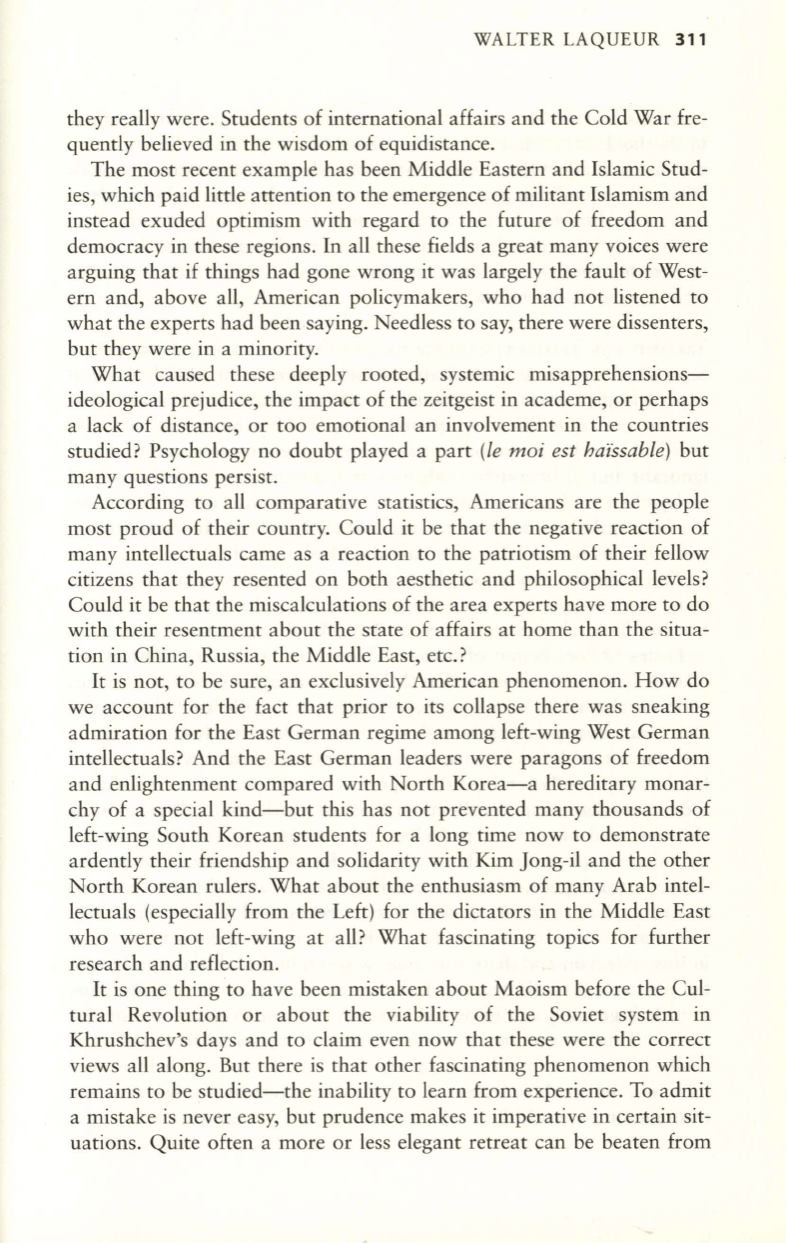
WALTER LAQUEUR
311
they really were. Students of international affairs and the Cold War fre–
quently believed in the wisdom of equidistance.
The most recent example has been Middle Eastern and Islamic Stud–
ies, which paid little attention to the emergence of militant Islamism and
instead exuded optimism with regard to the future of freedom and
democracy in these regions. In all these fields a great many voices were
arguing that if things had gone wrong it was largely the fault of West–
ern and, above all, American policymakers, who had not listened to
what the experts had been saying. Needless to say, there were dissenters,
but they were in a minority.
What caused these deeply rooted, systemic misapprehensions–
ideological prejudice, the impact of the zeitgeist in academe, or perhaps
a lack of distance, or too emotional an involvement in the countries
studied? Psychology no doubt played a part
(Ie moi est haissable)
but
many questions persist.
According to all comparative statistics, Americans are the people
most proud of their country. Could it be that the negative reaction of
many intellectuals came as a reaction to the patriotism of their fellow
citizens that they resented on both aesthetic and philosophical levels?
Could it be that the miscalculations of the area experts have more to do
with their resentment about the state of affairs at home than the situa–
tion in China, Russia, the Middle East, etc.?
It is not, to be sure, an exclusively American phenomenon. How do
we account for the fact that prior to its collapse there was sneaking
admiration for the East German regime among left-wing West German
intellectuals? And the East German leaders were paragons of freedom
and enlightenment compared with North Korea-a hereditary monar–
chy of a special kind-but this has not prevented many thousands of
left-wing South Korean students for a long time now to demonstrate
ardently their friendship and solidarity with Kim Jong-il and the other
North Korean rulers. What about the enthusiasm of many Arab intel–
lectuals (especially from the Left) for the dictators in the Middle East
who were not left-wing at all? What fascinating topics for further
research and reflection.
It
is one thing to have been mistaken about Maoism before the Cul–
tural Revolution or about the viability of the Soviet system in
Khrushchev's days and to claim even now that these were the correct
views all along. But there is that other fascinating phenomenon which
remains to be studied-the inability to learn from experience. To admit
a mistake is never easy, but prudence makes it imperative in certain sit–
uations . Quite often a more or less elegant retreat can be beaten from


